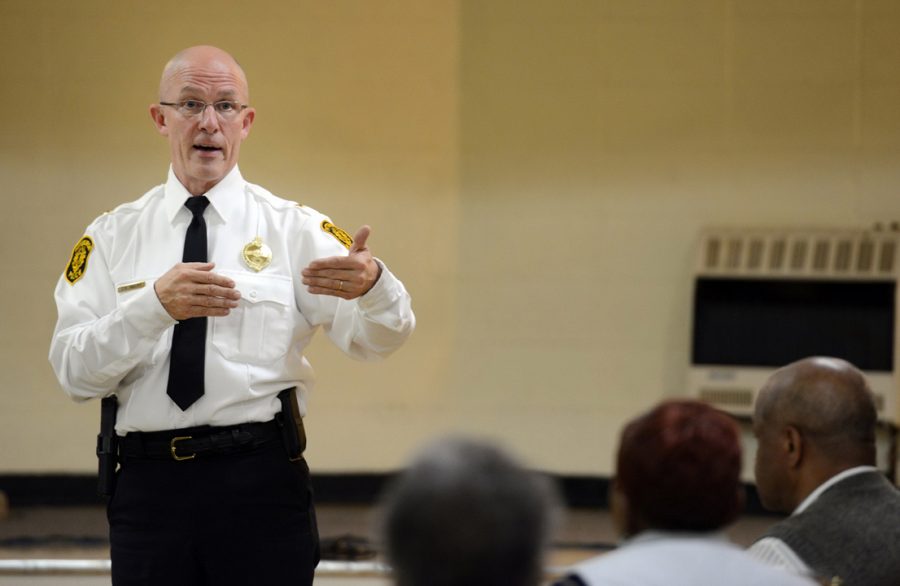After the resignation of Police Chief Cameron McLay in early November 2016, Mayor Bill Peduto gave the new acting police chief, Scott Schubert, 90 days to prove himself worthy of the position. As it turns out, Schubert didn’t need all that much time, evidenced by Peduto naming him to the position Friday.
While Schubert’s appointment is hardly a surprise to the city and its police officers, the transition of power isn’t primed to be a completely smooth one. With tensions between former chief McLay and the police department not completely quelled and a growing relationship between police and the community still in the fostering stages, it’s important that Schubert is committed to making progress that is good for both the city and the police community.
McLay was well known for the liberal reforms he brought to the city, but his firm stances on bias and discrimination in the police force, compounded by his actions outside city dealings, caused tension between him and the department. Tension that built to essentially bully him into his resignation. While many of McLay’s reforms should be championed, it’s now up to Schubert to find his own way of pushing for change and keeping the trust of those within his department.
Schubert said he was committed to “follow the vision” of McLay after taking over as acting police chief, a statement Pittsburghers must hold him to if they wish to see further change during his leadership. But he’s also stated he doesn’t “expect to get pushback” from his fellow officers for his furthering of McLay’s work, a statement that illustrates he might not be completely ready for the job.
This sentiment should alarm those in favor of the former chief’s reforms. It exposes that Schubert either misunderstands the reason for the issues between his predecessor and the police department, and McLay’s ultimate resignation, or illustrates that he won’t be willing to take hard stances against officers. Neither explanation is good for Pittsburgh.
If he continues to work toward more community policing, implicit bias training for officers and an overall commitment to repairing relationships between police and minority communities, all plans put forward by his predecessor, he is definitely likely to receive backlash from the force that he will have to address.
Perhaps Schubert is just optimistic about the effect he will have on his fellow officers. He, unlike McLay, was born and raised in Pittsburgh. He’s worked in the police department for 24 years and is the youngest in a proud blue-blood family that includes a father and an uncle who were also career policemen in Pittsburgh city police. This list of accolades may garner him more support and respect within the force.
Either way, there will come times when Schubert will have to pick between loyalty to the department or to the city. And when those moments come, Schubert will need to prioritize. This isn’t to say he can’t make his officers happy — of course that’s also part of his job — but he will have to stand up for his initiatives and commitment to making the city a better place for minority communities without letting the fear of being phased out of his position halt forward momentum.
It’s a hard time to be a police officer in America today, let alone the police chief of a major city. But it’s not enough for Schubert to merely ensure the city isn’t ablaze or to simply keep the status quo — he must be actively and purposefully moving Pittsburgh forward.



